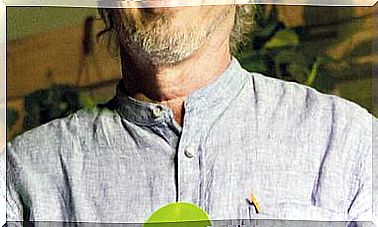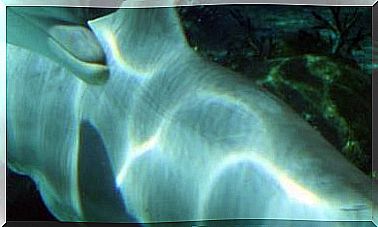3 Anti-vegan Clichés That You Will Love To Dismantle
Some arguments that are repeated ad nauseam to attack veganism are based on clichés that, if they are analyzed well, end up giving the reason to those who care about well-being animal.

Vegetarians and vegans often hear certain arguments that are repeated like memes and spread like wildfire in much of our conversations.
With our family, friends or on social networks we usually find many myths that those of us who have already chosen to eat a respectful diet with animals can dismantle.
But they are still demoralizing at times and, at the same time, they can generate unfounded doubts in those who are beginning to consider taking another step towards a 100% vegetable diet.
The funny thing is that some of these topics that are raised as “anti-vegan” are actually arguments in favor of veganism.
And, when completing the data, we find that the best solution to the dilemmas they pose is to replace meat and animal products in our diet.
Let’s see some of them:
1. Plants also suffer
One of the great topics par excellence, the supposed sentience of plants and with which it comes to express something like that vegetarian and vegan people generate enormous suffering by devouring plants without mercy and that, out of solidarity with them, we should alternate and eat animals too.
Science tells us that plants do not have a central nervous system or anything similar to a brain that allows them to experience pain and pleasure.
This ability to experience pain is an evolutionary characteristic that allows animals to flee from certain dangers. For plants, which live anchored to the ground, this mechanism would be completely useless and therefore they have other strategies for survival. They can perceive stimuli, which does not mean that they can experience pain or pleasure.
Therefore, this confusion usually comes from the idea that plants are living beings and, indeed, they are. But this is very different from having the capacity to feel.
What if plants felt what?
In any case, assuming that the plants did feel, a 100% vegetable diet would cause much less damage to the vegetation, since currently the vast majority of hectares devoted to cultivation are dedicated to obtaining grain with which to feed the animals. in factory farming.
Approximately 10 kg of cereal is needed to produce a single kilo of meat, so, without a doubt, the best thing that those who care about their suffering could do best is to eat a 100% vegetable diet.
2. If everyone went vegan, there would not be enough land or water to grow crops.
This myth seems to assume from the outset the idea that the animals we eat feed, in turn, on air. The reality is that factory farming is currently one of the main causes of deforestation on our planet, given the amount of land used to cultivate pastures that will later be used to make feed.
As if this were not enough, to produce 1 kilo of meat you need 15,000 liters of water. This means that for the production of a hamburger about 3,000 liters of water are used, the equivalent of showering for two months.
On the other hand, to produce the same amount of cereal we would only need 1,600 liters of water. The difference is overwhelming.
Who is wasting resources now?
These beliefs are based on a fictitious image, something like humanity devouring vegetables in an uncontrolled way, when the truth is that the closest thing to that is already happening through our consumption of animal products.
Yes, we are destroying the land and water resources by transforming plant nutrients into animal protein.
3. But if you were on a desert island …
The desert island is that place that any vegetarian or vegan knows perfectly, a surprisingly common resource to question the consistency of the values of those who sympathize with animals.
It is common in the debates around food that vegan people are led into all kinds of hypothetical situations, which often border on the absurd, with the aim of putting ourselves to the test.
The reality is that most likely anyone sensitive to the suffering of animals would try to avoid it also on a desert island, but the truth is that these conversations tend to take place in environments where we have sufficient access to all kinds of options and plant alternatives with which to substitute products of animal origin.
“Why are you vegan?” Ask yourself otherwise!
So before we go to the famous (and fearsome) desert island, to engage in circular conversations about whether plants also suffer or to make catastrophic hypotheses about the impossibility of assuming an increasingly plant-based diet as a society, it is interesting to look at our around and ask ourselves what we are telling ourselves so that, with so many possibilities at our fingertips, we are not yet choosing the most respectful of animals and our environment.
The future is vegetable, hundreds of studies and reports tell us about the unsustainable impact of factory farming and animal products.
Perhaps it is time to stop asking why and seriously consider why not.









